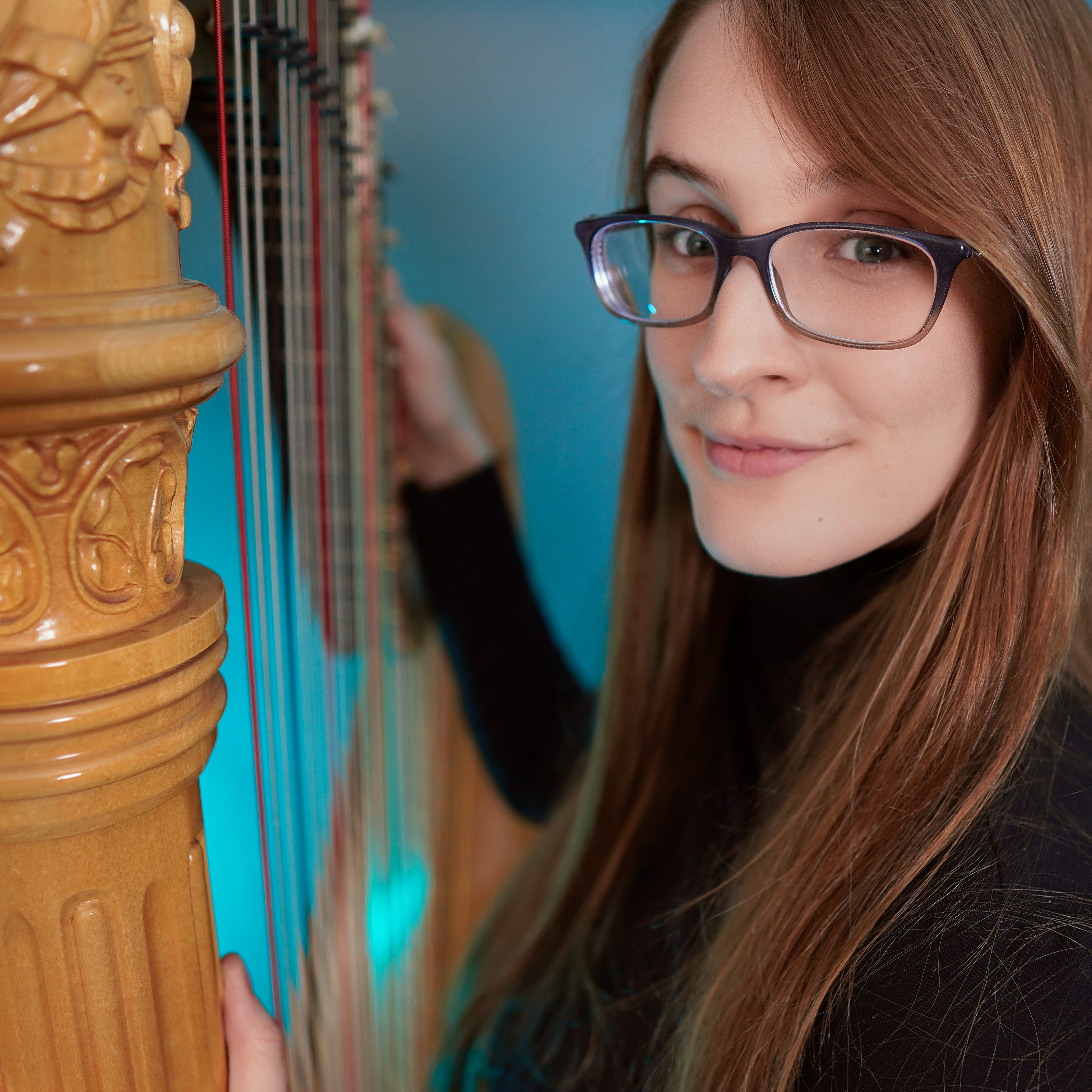
5 Harp Habits to Leave Behind for Better Progress in the New Year
Hi, I’m Samantha, and welcome to the harp studio! As we approach the new year, it’s the perfect time to reflect on our practice habits and make positive changes to help us grow as harpists. Today, I’m sharing five habits that might be holding you back—and how to replace them with more effective approaches to your practice.
1. Practicing on Autopilot
This is perhaps the most common and damaging habit. It’s so easy to sit down at the harp and just start playing and not really think about what you’re doing. While some practice is better than none, going through the motions mindlessly won’t help you improve in meaningful ways.
The foundation of effective practice is intention: awareness, observation, and making choices.
Take a moment to pause throughout your practice session and ask yourself:
What do I want to accomplish today?
What specific area needs the most focus?
HOW do I want to approach this piece or exercise?
What are my fingers doing, and what do I want them to do?
What do I notice about what I just played - what’s something specific that I can improve?
It’s pausing to ask these kinds of questions, notice your frame of mind and any observations about what and how you’re playing, and make choices about your practice that actually allows you to really learn and make change. That’s kind of what practice is all about.
So it’s time to bring some more intention to your practice and leave autopilot behind.
2. Playing Without Warming Up Properly
Many harpists warm up their fingers with scales or exercises, but what about the rest of your body?
Your neck, shoulders, arms, and even your hips do a lot of work while you play. Jumping into playing without warming up these areas can increase the risk of injury and hinder your ability to play your best.
Take a few minutes before you play to gently move your joints. This simple habit can make a big difference in how comfortable and effective your playing feels. If you’re unsure where to start, I’ve created a detailed guide on warming up your body for playing harp—check it out for some easy tips.
3. Skipping Technique Practice
I get it—technique exercises might not be the most exciting part of your practice. You’d rather dive straight into the music you love. But here’s the thing: good technique is the foundation that enables you to play that music well.
When you practice music, there are so many other things to think about - and it can be hard to think about technique. That’s why dedicating time to exercises, where your only focus is on how your fingers move, is so important. Over time, this builds a strong technical default that will support you even when you’re not actively thinking about it.
Spend a few minutes each session on technique, and you’ll notice the benefits in your pieces.
4. Never Ever Tuning Your Harp
Again, I get it. It takes forever and it’s annoying. While tuning every single time you play is ideal, I understand that sometimes there just isn't time, or you don't have the motivation to both tune AND practice. If I have to pick one, I'd rather you practice without tuning.
But tuning regularly is essential for several reasons:
Ear training: Tuning helps you develop your ability to hear subtle pitch differences.
Better sound: Your harp will sound more beautiful and enjoyable to play.
String stability: If you let your strings sit untuned for long periods, they’ll drift out of pitch more easily, making future tuning sessions even more frustrating.
If daily tuning isn’t realistic, aim to tune at least once a week. It’s a small habit with a big payoff.
5. Thinking in Absolute "I" Statements
This final habit is more about mindset than technique, but it’s just as important.
When you practice, try to notice your thoughts, and avoid statements that start with "I" and focus on judgment rather than a path forward, for example: phrases like “I’m terrible at this” or “I can’t play this”
This kind of thinking is so damaging because ultimately it makes you think that any “bad playing” is a reflection on you as a person, and also that there’s no room for it to change. It’s seriously demotivating.
Instead, try reframing your thoughts. For example:
Instead of “I can’t play this,” think, “I’m getting tripped up at the cross-under—what can I do to improve?”
Add “yet” or “for now” to your thoughts: “I can’t do this yet” or “I don’t like how this sounds, for now.”
These shifts in language make a huge difference in how you approach challenges and keep you motivated to keep trying. For more tips on overcoming negative self-talk, check out my video linked here.
Ready to Level Up Your Practice?
By breaking these five habits, you’ll set yourself up for more efficient, enjoyable, and rewarding practice sessions. If you’d like more harp tips and tricks, sign up for my email list to get free resources sent straight to your inbox.
Let’s make this year your best yet as a harpist!
See you next time!

